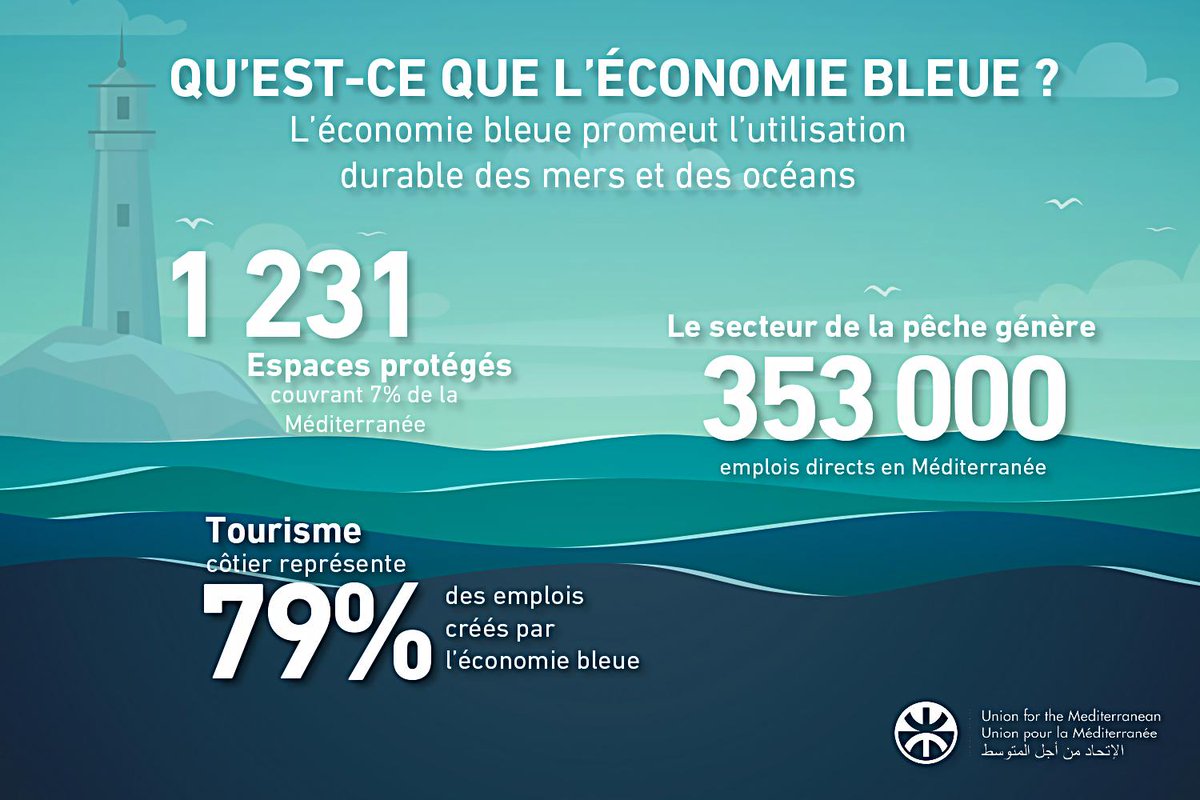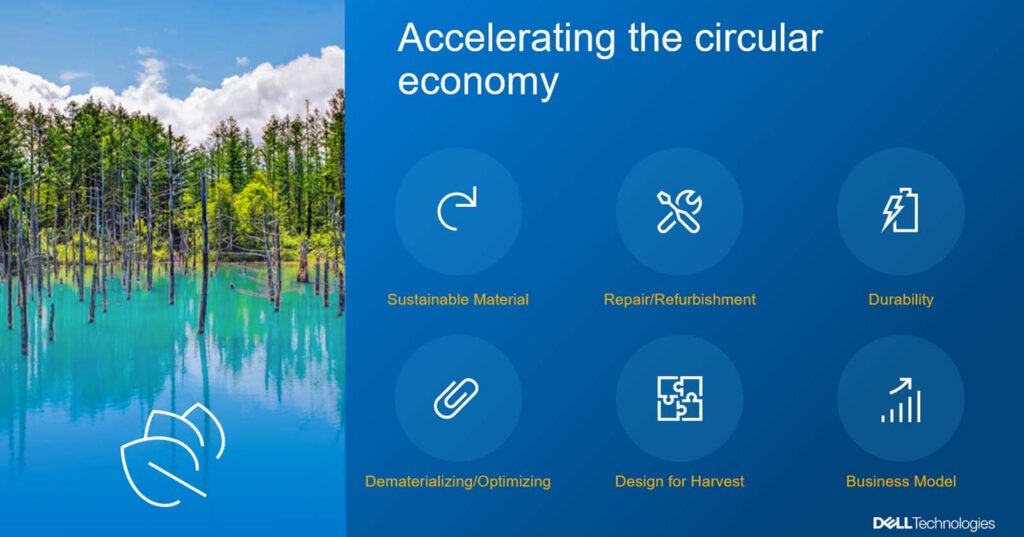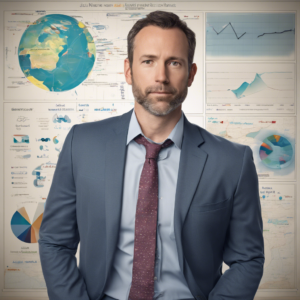The blue economy is emerging as a key concept to promote sustainable development that preserves our marine resources while stimulating economic growth. By integrating environmentally friendly practices in the maritime and coastal sectors, it offers innovative solutions to address contemporary challenges such as climate change, pollution and the degradation of marine ecosystems. By exploring the opportunities offered by this approach, we can not only protect marine biodiversity, but also create sustainable jobs and encourage responsible use of maritime resources, thereby shaping a harmonious and sustainable future for future generations.
| Appearance | Impact of the Blue Economy |
| Support for biodiversity | Protection of marine ecosystems promoting the resilience of species. |
| Sustainable innovation | Creation of green technologies to exploit maritime resources. |
| Local economy | Promotion of jobs in sectors linked to the sea, such as sustainable fishing. |
| Waste management | Reducing marine pollution through cleaning and recycling initiatives. |
| Education and awareness | Public information on marine issues contributing to collective awareness. |
| International partnerships | Collaboration between nations for sustainable ocean management. |
- Protection of Marine Ecosystems
- Preservation of ocean biodiversity
- Technological Innovation
- Development of maritime renewable energies
- Responsible Resource Exploitation
- Sustainable fishing and improved aquaculture
- Creation of Sustainable Jobs
- Training of a workforce specialized in maritime professions
- Revitalization of Local Economies
- Support for coastal communities and artisanal fishermen
- Promotion of Scientific Research
- Encouragement of studies on marine ecosystems
- Education and Awareness
- Programs to raise awareness about the importance of the oceans
- International Collaboration
- Partnerships for the sustainable management of maritime resources
Table of Contents
ToggleThe Blue Economy in Practice

L’blue economy, an emerging concept aimed at promoting sustainable use of marine resources, has the potential to transform our societies by enabling responsible economic growth. Many initiatives already show how this innovative approach can contribute to a more sustainable future. sustainable. By focusing on the technology and by promoting respectful practices of the marine environment, the blue economy opens new perspectives for ocean conservation.
Concrete examples of the implementation of the blue economy include the promotion of sustainable fishing, ethical aquaculture and effective management of marine resources. For example, communities such as Pointe-Noire in Guadeloupe are banking on the blue economy and maritime professions to create jobs while protecting the environment (link).
Marine renewable energy also represents a key component of the blue economy. By exploiting the natural resources such as wind, waves and tides, these technologies offer a sustainable alternative to fossil fuels. This not only reduces the carbon footprint, but also contributes to the resilience of coastal communities in the face of climate change.
The preservation of marine biodiversity is another crucial aspect. THE marine protected areas and mangrove reforestation initiatives play a vital role in maintaining marine ecosystems. These efforts contribute to the survival of many species while providing economic benefits such as ecological tourism.
Other initiatives include the development of sustainable tourism and the fight against marine pollution. Raising public awareness of the importance of respectful practices can greatly reduce the environmental impact of traditional tourism. Organizations like the French Maritime Cluster are working in this direction to promote the benefits of ecological tourism.
By encouraging industries to adopt innovative practices and investing in research, the blue economy can become a powerful lever for a balanced future. It thus offers vast development opportunities while ensuring the ocean protection and their ecosystems.
Fundamental Principles of the Blue Economy
L’blue economy is a concept focused on the sustainable management of maritime resources. It encompasses various practices ranging from responsible fishing to therenewable marine energy. The main objective is to promote economic growth while preserving marine ecosystems.
A good example of the blue economy in practice is the SIREN internship aboard the PHA Mistral. This initiative aims to train participants in the skills needed to protect and sustainably exploit marine resources. These training courses fit perfectly into the principles of the blue economy, which emphasize the protection of the oceans.
One of the fundamental principles of the blue economy is technological innovation. The integration of advanced technologies allows marine habitats to be monitored and managed more effectively. For example, underwater sensors and drones enable continuous and precise monitoring of marine ecosystems, thus facilitating the rapid implementation of protective measures.
Another key principle is the engagement of local communities. Blue economy projects must involve local populations to ensure sustainable management. Local fishermen can be trained in more sustainable fishing methods, while coastal communities can participate in the development of marine renewable energy projects.
The blue economy also proposes to diversify economic activities by including sectors such as maritime ecological tourism and theethical aquaculture. These emerging industries offer viable and environmentally friendly alternatives, reducing pressure on traditional marine resources.
Examples of Success in the Maritime Sector
The blue economy is an innovative concept which aims to use marine resources in a manner sustainable and ethics. By integrating environmentally friendly practices into the maritime sector, it aspires to preserve ecosystems while promoting economic development.
A concrete application of the blue economy includes the sustainable fisheries management, which ensures that fish stocks are not overexploited. This translates into well-defined fishing quotas and the use of techniques that respect the marine habitat, thus allowing fish populations to recover.
The sector ofrenewable marine energy is also booming, with the development of technologies such as offshore wind and the use of wave energy. These innovations help reduce our dependence on fossil fuels while minimizing the ecological footprint.
In the field of ecological tourism, initiatives are deployed to encourage practices that respect the marine environment. Measures such as limiting the number of visitors to protected areas and promoting activities with low ecological impact help preserve marine biodiversity while allowing local communities to benefit from the economic benefits of tourism.
Among the examples of success, preservation of mangroves in Vietnam perfectly illustrates how effective ecosystem management can lead to multiple benefits, from protecting against storms to promoting biodiversity.
Likewise, Norway has been able to take advantage of its maritime resources by investing heavily in sustainable aquaculture. By integrating advanced technologies and ethical practices, the country is not only able to meet the growing demand for seafood products, but also to reduce the environmental impact of this industry.
In short, the blue economy offers a viable alternative for a better future sustainable, emphasizing the harmonization of human activities with the preservation of marine resources. Adopting these practices not only protects our ocean heritage, but also stimulates innovation and economic growth in a responsible manner.

What is the Blue Economy?
The Blue Economy refers to sustainable economic activities that take advantage of maritime and aquatic resources while preserving the environment. It encompasses fishing, aquaculture, coastal tourism and marine renewable energies.
How can the Blue Economy contribute to sustainability?
The Blue Economy contributes to sustainability by supporting practices that respect marine ecosystems, reducing overfishing, and promoting operating methods that minimize environmental impact.
What are the main advantages of the Blue Economy?
The main benefits include creating jobs, protecting marine ecosystems, reducing poverty in coastal communities and providing a renewable energy source.
What initiatives have been put in place to promote the Blue Economy?
Initiatives vary from the establishment of protected marine parks to certification programs for sustainable fishing practices to investments in marine energy technologies.
What challenges does the Blue Economy have to overcome?
Challenges include insufficient regulation, overfishing, climate change and the need for financing for sustainable projects. It is essential to raise awareness and involve local communities.









